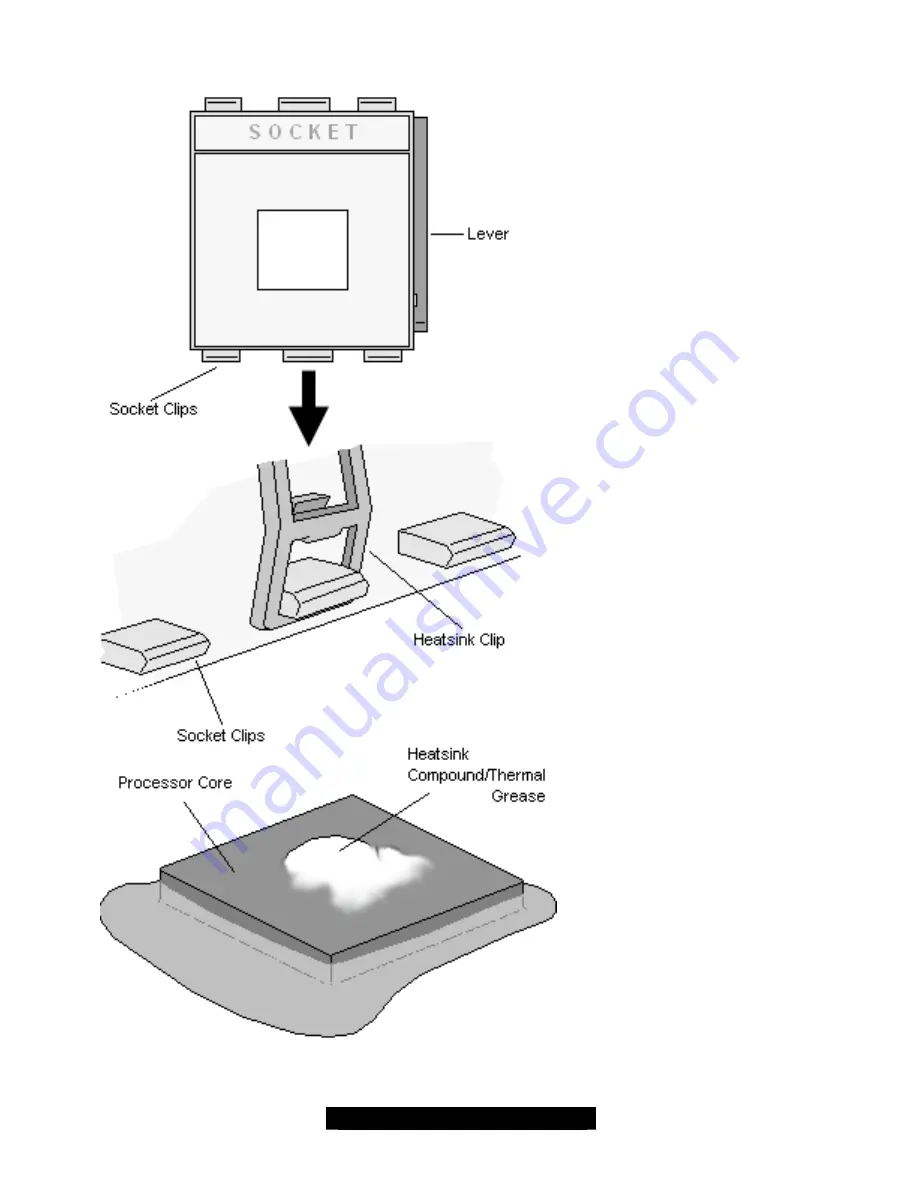
15
http://www.tyan.com
The following diagram will illustrate how to install the most common heatsinks:
First, use thermal compound
(also called heatsink compound
or thermal grease) and apply a
small amount on to the
processor’s core – the small
shiny square in the center of the
processor.
You may then use a small soft
plastic tool, like a credit card to
gently smear a thin layer of
heatsink compound as evenly as
you can across the core.
Because one side of the socket
is raised (and usually has
“SOCKET” imprinted into it)
heatsinks have an indent on one
side to secure flush with the
raised side of the socket.
Then, at an angle, clip one side
of the heatsink onto the socket
and then lay the heatsink flat
onto the processor. Then clip the
other end of the heatsink down
either with your finger or by
using a flathead screw driver.
Some heatsinks have a small
clip on the inside of one of the
clips which you can insert a
small flathead screw driver into
to secure the heatsink.
In most cases, either side of the
heatsink can be clipped down
last, but usually, the side of the
socket where it is raised,
secures last.
Be sure to carefully observe
which side your heatsink is
seated before securing it down
to avoid damaging the
processor, the heatsink or both.
This is will probably be the most
difficult of setting up your
computer so please exercise
caution. TYAN will not accept
responsibility and no warranty
will be given for damage due to
improperly installed heatsinsks.






























